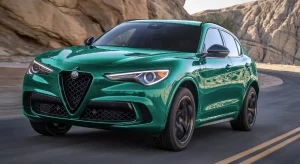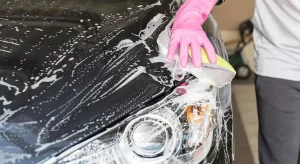In a world that’s increasingly conscious of its environmental footprint, selling junk cars is not just a transaction—it’s a step towards ecological responsibility. When you decide to sell your old vehicle, you’re not just freeing up garage space; you’re participating in a global recycling effort that benefits the earth in several profound ways.
Making the Right Choice
When you decide it’s time to part with your old vehicle, choosing to sell to responsible junk car buyers can make a significant environmental impact. It’s a decision that echoes the importance of sustainability in our everyday choices. Selling your junk car isn’t just about making a few extra dollars; it’s about contributing to a cleaner, healthier planet for generations to come. By taking this simple yet impactful action, you’re affirming your role as an environmentally conscious citizen, all while reaping the benefits that come from doing good.
Reducing Environmental Toxins
Taking a proactive role in reducing environmental toxins starts with addressing the silent but significant impact of junk cars. These old vehicles, often left to rust and deteriorate, can become mini toxic waste sites. As they break down, they leach harmful chemicals into the soil and groundwater, which can lead to serious environmental and health consequences. By choosing to remove these potential hazards from your property and sell your junk car, you’re not only cleaning up your immediate surroundings but also contributing to the wider protection of our planet’s natural resources.
Safeguarding Our Natural Resources
Junk cars, left to sit and deteriorate, are more than just space-consuming—they are potential environmental hazards. As they rust and decay, these vehicles can release harmful chemicals into the environment, contaminating soil and groundwater. By selling your junk car, you’re initiating a recycling process that ensures toxic fluids and metals are disposed of correctly, reducing the risk of pollution and protecting the ecosystem.
Conserving Energy with Metal Recycling
The most significant environmental benefit of selling a junk car is the conservation of energy and resources. The recycled steel from junk cars saves an enormous amount of energy, which would otherwise be used in the production of new metals. The energy saved from recycling one ton of steel can power an average household for two months, making the act of selling a junk car to recyclers a powerful choice for energy conservation.
Reusing Parts Reduces Manufacturing Demand
Every car has parts that can be reused or remanufactured, which means less raw material is needed to create new products. When you sell your junk car, usable parts like alternators, starters, and engines can be refurbished and sold, reducing the need for new parts to be made. This not only saves energy and materials but also decreases the manufacturing industry’s carbon emissions.
A Catalyst for Greener Innovations
The process of recycling junk cars also encourages the development of greener automotive technologies. As more materials become available through recycling, there is a greater incentive for companies to invest in products that use recycled materials, paving the way for innovations in the automotive industry that prioritize sustainability.
Suggestion: 2024 Lamborghini Huracan Review, Price, Release Date & More
Boosting Air Quality
Continuing on the path of environmental benefits, selling your junk car has a direct and positive effect on air quality. Older vehicles typically lack the advanced emission control technologies found in newer models, meaning they emit a greater volume of pollutants into the atmosphere. By taking the step to sell these older cars for recycling, we help to phase out inefficient vehicles that contribute disproportionately to air pollution.
This, in turn, leads to improved air quality, with less smog and a healthier environment for all living things. It’s a clear win-win: removing potential dangers from our driveways and contributing to the global effort of clearing the air we all breathe.
Cleaner Production for a Healthier Atmosphere
When materials from junk cars are recycled, it leads to a cleaner production process. Manufacturing with recycled metals emits less carbon dioxide compared to using virgin materials. By reducing greenhouse gas emissions, you’re contributing to cleaner air and a decrease in the potential for climate change.
Phasing Out Older, More Polluting Vehicles
Moreover, older vehicles are typically less fuel-efficient and emit more pollutants. Selling your junk car means it will be taken off the roads, thus reducing the number of high-emission vehicles in use and contributing to improved air quality.
Economic and Environmental Hand-in-Hand
The synergy between economic incentives and environmental benefits is most evident when selling a junk car. This process isn’t just about turning metal into money—it’s also a contribution to a larger environmental mission. Every junk car sold for recycling is a step towards reducing the strain on our planet’s resources.
Also Check: List of 16 Best Fuel Efficient Cars of 2023 and 2024
It’s a dual victory, securing both a financial reward for the seller and advancing the cause of environmental sustainability. The act of selling your junk car becomes a simple yet impactful strategy in the quest for a greener earth, proving that economic and environmental interests can indeed go hand in hand for the greater good.
Turning Metal into Money
Selling your junk car not only yields financial benefits for you but also supports a thriving recycling industry. The scrap metal industry is a vital component of the global recycling sector, turning waste into wealth and fostering an economy that values reuse over waste.
Encouraging a Circular Economy
By selling your junk car, you’re participating in a circular economy that designs out waste and pollution, keeps products and materials in use, and regenerates natural systems. It’s an economic model that is restorative and regenerative by design, and your old car can play a part in it.
The Bottom Line
Selling your junk car goes beyond mere financial gain; it embodies a commitment to environmental stewardship and the promotion of a sustainable future. This act of recycling translates into tangible benefits for our planet—minimizing waste, reducing the demand for new resources, cutting down on pollution, and fostering the growth of an economy that respects the limits of our natural world.
As individuals, choosing to sell our old vehicles is a powerful statement of our priorities, showing that we value ecological health and are willing to contribute to the global effort to protect it. So when the time comes to say goodbye to your old car, remember that in its final service, it can become a vessel for positive environmental change, contributing to a greener planet and a cleaner future for all.





